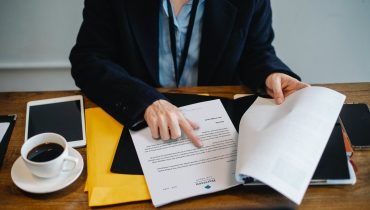For businesses in Los Angeles, unpaid invoices and delinquent accounts can severely disrupt cash flow and stall growth. Navigating commercial debt collection effectively requires a combination of strategic planning, clear communication, and knowledge of California’s business laws.
Whether you’re a small enterprise or a larger corporation, understanding your legal rights and the best practices for collecting debts can improve your recovery rate while preserving valuable business relationships.
Understanding the Commercial Debt Collection Process
Commercial debt collection refers to the process of recovering money owed by another business, not individual consumers. These debts typically arise from unpaid invoices, breached contracts, or services rendered without payment.
Unlike consumer collections, commercial collections involve entities that are often more familiar with legal processes and negotiations; therefore, your collection strategy must be sharp and compliant with both California law and federal guidelines.
Best Practices for Businesses Seeking Debt Recovery
An organized and professional approach to debt collection can lead to better outcomes and fewer legal pitfalls. Consider these key practices:
- Document Everything: Maintain accurate records of contracts, invoices, emails, and any payment agreements. This documentation is essential if legal action becomes necessary.
- Follow Up Promptly: Reach out quickly when a payment is missed. Delays can reduce the chance of successful recovery.
To keep your internal collection efforts efficient:
- Establish a consistent internal collections timeline (e.g., follow-up at 15, 30, and 60 days).
- Use professional yet firm language in all communications.
- Be willing to negotiate payment plans when feasible.
If these efforts don’t produce results, legal action may be warranted.
Legal Strategies for Commercial Debt Collection
A skilled Los Angeles commercial debt collection lawyer can offer critical guidance when it comes to pursuing delinquent payments through litigation or arbitration. Depending on the amount and complexity of the debt, options may include:
- Demand Letters: A formal demand drafted by your attorney can show you’re serious while offering a final opportunity to resolve the matter without going to court.
- Lawsuits and Judgments: When necessary, filing a breach of contract claim or another legal action can compel payment or at least lead to a court judgment that allows for enforcement measures such as liens or wage garnishments.
- Prejudgment Remedies: California law permits creditors to seek prejudgment remedies, such as writs of attachment, in certain cases, thereby securing assets before a final judgment is entered.
The Role of a Business Attorney in Debt Collection
Partnering with a knowledgeable commercial litigation attorney ensures your collection efforts stay within legal boundaries while maximizing your recovery potential. An attorney can also help assess the debtor’s assets and determine whether it’s worth pursuing a claim, saving your business time and money in the long run.
Contact a Los Angeles Commercial Debt Collection Lawyer Today
If your company is struggling to recover delinquent payments, don’t wait for debts to pile up. A seasoned Los Angeles commercial debt collection lawyer can help you navigate the collection process, negotiate favorable settlements, and pursue legal action when necessary. Call Leiva Law Firm today at (818) 519-4465 to schedule a consultation and protect your business’s bottom line.




